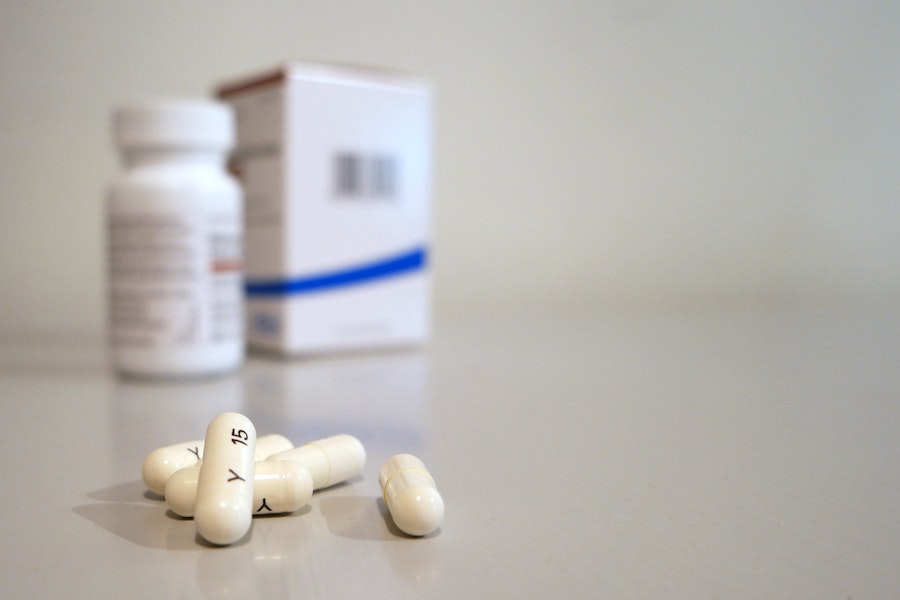In the realm of antibiotic treatment, amoxicillin stands as a commonly prescribed and highly effective option. However, there is often confusion surrounding the appropriate conditions for its intake, particularly whether it should be taken on an empty stomach. This article aims to dispel common misconceptions and provide a clear understanding of amoxicillin’s administration guidelines. We will delve into the mechanisms of amoxicillin, dosing instructions, and the factors affecting its absorption with or without food, empowering readers to make informed decisions about their antibiotic regimen.
Can I Take Amoxicillin On An Empty Stomach?
Yes, you can take amoxicillin on an empty stomach. While it’s commonly recommended to take it with food to minimize stomach upset, it can be taken without food if necessary. However, always follow your healthcare provider’s specific instructions on when and how to take amoxicillin to ensure optimal effectiveness in treating bacterial infections. Consulting a healthcare professional is crucial for personalized guidance.
The Role Of Timing And Food In Amoxicillin Absorption
The timing of amoxicillin intake and its interaction with food play pivotal roles in the drug’s absorption and effectiveness. Understanding these factors is essential for maximizing the therapeutic benefits of amoxicillin while minimizing potential side effects.
The timing of amoxicillin doses is critical for its efficacy. It is typically prescribed to be taken at regular intervals throughout the day to maintain a consistent level of the drug in your bloodstream. This helps in effectively combating the bacterial infection. Missing doses or not adhering to the prescribed timing can lead to suboptimal results and potentially allow the infection to persist or develop antibiotic resistance.
While amoxicillin can be taken with or without food, the presence of food in the stomach can influence its absorption. Food can slow down the absorption of amoxicillin, leading to a more gradual release of the drug into the bloodstream. This can be beneficial for individuals who experience stomach discomfort or nausea when taking antibiotics. However, it’s important to note that taking amoxicillin with a large or high-fat meal may further delay its absorption, so moderation is key.
Taking amoxicillin on an empty stomach generally results in faster absorption, as there are fewer substances in the stomach to interfere with the drug’s passage into the bloodstream. This can be advantageous in cases where rapid antibiotic action is crucial. However, taking amoxicillin with food can be a more comfortable option for those who are sensitive to its potential gastrointestinal side effects, such as nausea or upset stomach.
The decision to take amoxicillin with or without food should ideally be made in consultation with a healthcare provider. They can consider your specific medical condition, the severity of the infection, your tolerance for potential side effects, and other individual factors to provide personalized guidance on the best timing and conditions for amoxicillin administration. It’s important to follow your healthcare provider’s instructions precisely to ensure the antibiotic’s effectiveness in treating your infection while minimizing any discomfort or adverse effects.
How Does Food Affect Amoxicillin Absorption?
The presence of food in the stomach can significantly affect the absorption of amoxicillin, influencing its pharmacokinetics and, consequently, its effectiveness in treating bacterial infections. Here’s how food affects amoxicillin absorption:
- Slower Absorption with Food: Taking amoxicillin with a meal or shortly after eating can slow down its absorption into the bloodstream. Food in the stomach can delay the drug’s passage through the gastrointestinal tract and its subsequent entry into the bloodstream. This delay results in a more gradual release of amoxicillin into the system, which can be advantageous in certain situations.
- Steadier Blood Levels: Slower absorption due to food can help maintain a steadier concentration of amoxicillin in the bloodstream over time. This steadiness can be beneficial for some individuals, as it may reduce the risk of experiencing rapid spikes or drops in drug levels. Steadier blood levels of amoxicillin can contribute to a more consistent therapeutic effect against the targeted bacterial infection.
- Reduced Gastrointestinal Irritation: One of the primary reasons healthcare providers sometimes recommend taking amoxicillin with food is to minimize gastrointestinal side effects. Amoxicillin can sometimes cause stomach upset, nausea, or diarrhea. Having food in the stomach can act as a buffer, reducing the likelihood of irritation to the stomach lining and the associated discomfort.
- Impact of Meal Composition: It’s worth noting that the composition of the meal matters. High-fat or heavy meals can more substantially delay amoxicillin absorption compared to lighter meals. Consequently, healthcare providers often advise taking amoxicillin with a small, balanced meal to strike a balance between minimizing side effects and maintaining adequate absorption.
Potential Side Effects Of Taking Amoxicillin On An Empty Stomach
Taking amoxicillin on an empty stomach can potentially lead to a higher risk of experiencing certain side effects. While the drug can be taken without food, doing so may increase the likelihood of the following side effects:
- Gastrointestinal Upset: One of the most common side effects of amoxicillin, especially when taken on an empty stomach, is gastrointestinal upset. This may include symptoms like stomach pain, nausea, vomiting, and diarrhea. Food in the stomach can act as a buffer and help reduce the irritation that amoxicillin may cause to the stomach lining.
- Nausea: Taking amoxicillin on an empty stomach can make some individuals more susceptible to nausea. This discomfort can be lessened by consuming a small meal or snack before taking the medication.
- Increased Risk of Diarrhea: Diarrhea is another potential side effect of amoxicillin. When taken on an empty stomach, amoxicillin may move more quickly through the gastrointestinal tract, potentially increasing the risk of diarrhea.
- Decreased Absorption: While taking amoxicillin on an empty stomach may result in faster absorption, it can also lead to incomplete absorption in some cases. This means that a portion of the drug may pass through the digestive system without being fully utilized, potentially reducing the drug’s effectiveness.
- Potential for Gastric Irritation: The absence of food in the stomach may expose the stomach lining to the drug’s effects more directly, increasing the risk of irritation or discomfort.
Tips For Minimizing Potential Side Effects
Minimizing potential side effects when taking amoxicillin or any antibiotic is essential for a comfortable and effective treatment experience. Here are some tips to help you manage and reduce the risk of side effects:
- Take with Food (if advised): If your healthcare provider recommends taking amoxicillin with food, follow their advice. Consuming a small meal or snack before taking the medication can help reduce the risk of gastrointestinal upset and nausea.
- Stay Hydrated: Ensure you’re adequately hydrated throughout your antibiotic course. Drinking plenty of water can help prevent dehydration, which can be a side effect of diarrhea.
- Probiotics: Consider adding probiotics to your diet or taking them as supplements. Probiotics can help maintain a healthy balance of beneficial bacteria in your gut, which may reduce the risk of antibiotic-associated diarrhea.
- Follow Dosage Instructions: Always take amoxicillin exactly as prescribed by your healthcare provider. Do not skip doses or stop the medication prematurely, even if you start feeling better. Completing the full course of antibiotics is essential to ensure that all bacteria causing the infection are eliminated.
- Avoid Alcohol: While taking antibiotics, it’s generally advisable to avoid alcohol. Alcohol can interact with some antibiotics and may exacerbate side effects.
- Antacids and Other Medications: If you are also taking antacids, iron supplements, or other medications, discuss their timing with your healthcare provider. Some of these substances can interfere with amoxicillin absorption.
- Monitor for Allergic Reactions: Be vigilant for signs of an allergic reaction, such as rash, itching, swelling, severe dizziness, or difficulty breathing. If you experience any of these symptoms, seek immediate medical attention.
When To Consult A Healthcare Provider?
Consulting a healthcare provider during and after taking amoxicillin is crucial to ensure your safety and the effectiveness of the treatment. Here are specific situations in which you should reach out to a healthcare professional:
- Allergic Reactions: Seek immediate medical attention if you experience signs of an allergic reaction, such as hives, rash, itching, swelling (especially of the face, lips, or tongue), severe dizziness, or difficulty breathing. Allergic reactions to antibiotics can be serious and require immediate intervention.
- Severe Side Effects: If you encounter severe side effects while taking amoxicillin, such as severe diarrhea, persistent vomiting, extreme stomach pain, or any other unusual and severe symptoms, contact your healthcare provider promptly.
- Missed Doses: If you accidentally miss a dose or are unsure about whether you should take a missed dose, consult your healthcare provider or pharmacist for guidance on how to proceed.
- Overdose Concerns: If you suspect you have taken too much amoxicillin, either accidentally or intentionally, seek immediate medical attention. Symptoms of overdose may include severe vomiting, confusion, or seizures.
- Persistent or Worsening Symptoms: If your symptoms do not improve within a few days of starting amoxicillin, or if they worsen despite taking the medication as prescribed, contact your healthcare provider. This could indicate that the antibiotic is not effective against the specific bacterial infection, or that another issue needs to be addressed.
Conclusion
In conclusion, understanding the nuances of amoxicillin administration, including whether to take it on an empty stomach or with food, is vital for effective antibiotic therapy. While amoxicillin can be taken without food, it’s crucial to adhere to healthcare provider instructions. The decision should consider individual factors, including the specific bacterial infection and potential side effects. By following professional guidance, being vigilant for allergic reactions, and promptly addressing concerns, patients can ensure both their safety and the successful treatment of infections with this commonly prescribed antibiotic.
FAQ’s
Can I Take Amoxicillin On An Empty Stomach?
Amoxicillin can be taken with or without food, depending on your healthcare provider’s recommendation. While taking it with food can help reduce gastrointestinal side effects, following your provider’s specific instructions is essential for optimal treatment.
What Should I Do If I Miss A Dose Of Amoxicillin?
If you miss a dose, take it as soon as you remember. However, if it’s close to the next scheduled dose, skip the missed one. Do not double the dose to make up for the missed one. Consult your healthcare provider or pharmacist for guidance if you’re unsure.
What Are The Common Side Effects Of Amoxicillin?
Common side effects include nausea, vomiting, diarrhea, and stomach discomfort. These side effects can often be minimized by taking amoxicillin with food and staying hydrated.
How Long Should I Take Amoxicillin?
The duration of amoxicillin treatment depends on the type and severity of the infection. It’s essential to complete the full course as prescribed by your healthcare provider, even if you start feeling better before it’s finished. Stopping too soon can lead to incomplete eradication of the infection.
Can I Consume Alcohol While Taking Amoxicillin?
It’s generally advisable to avoid alcohol while on antibiotics, including amoxicillin. Alcohol can interact with the medication and potentially increase the risk of side effects or reduce its effectiveness. It’s best to abstain from alcohol until you’ve completed your antibiotic course and consulted with your healthcare provider.




















Leave a Reply